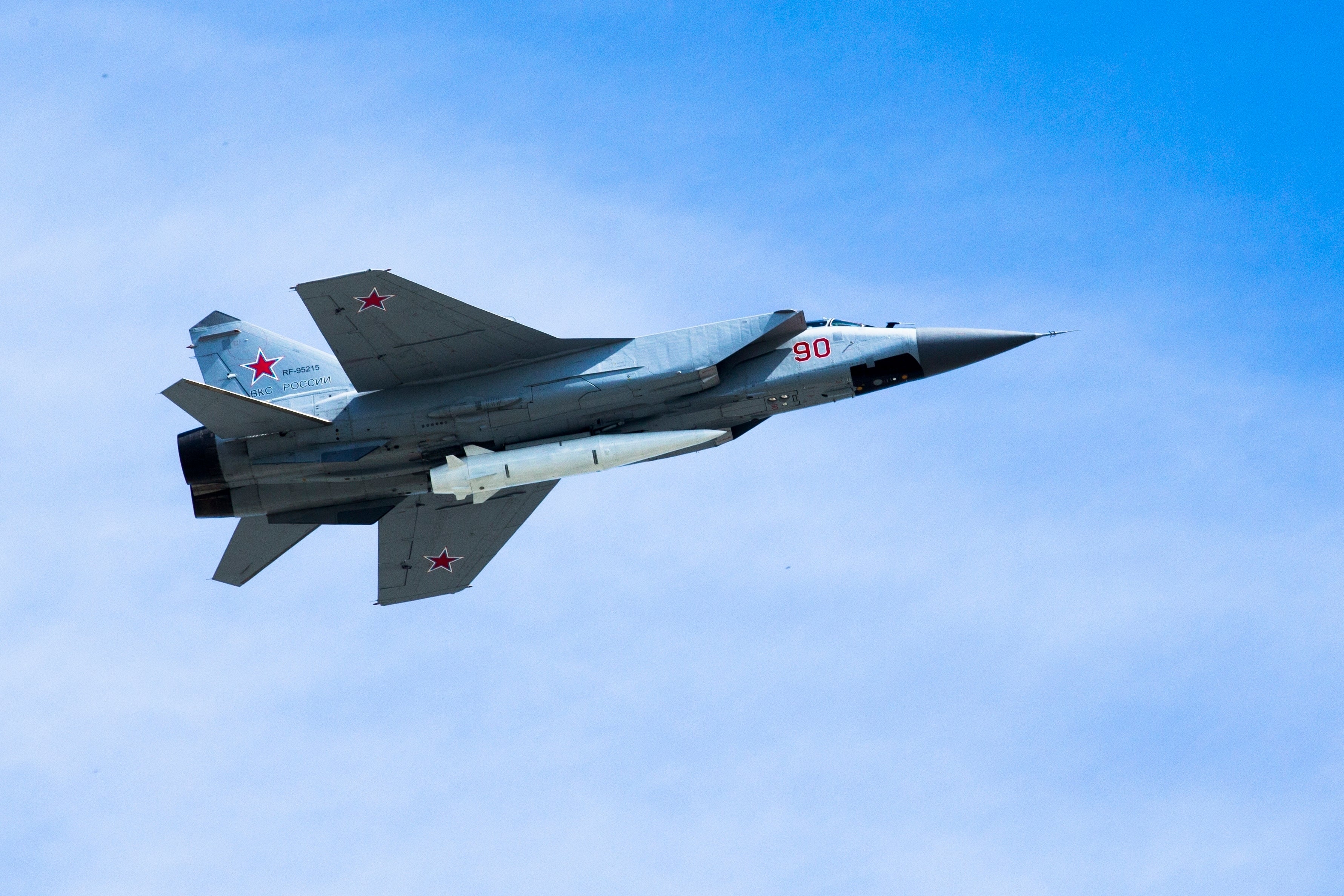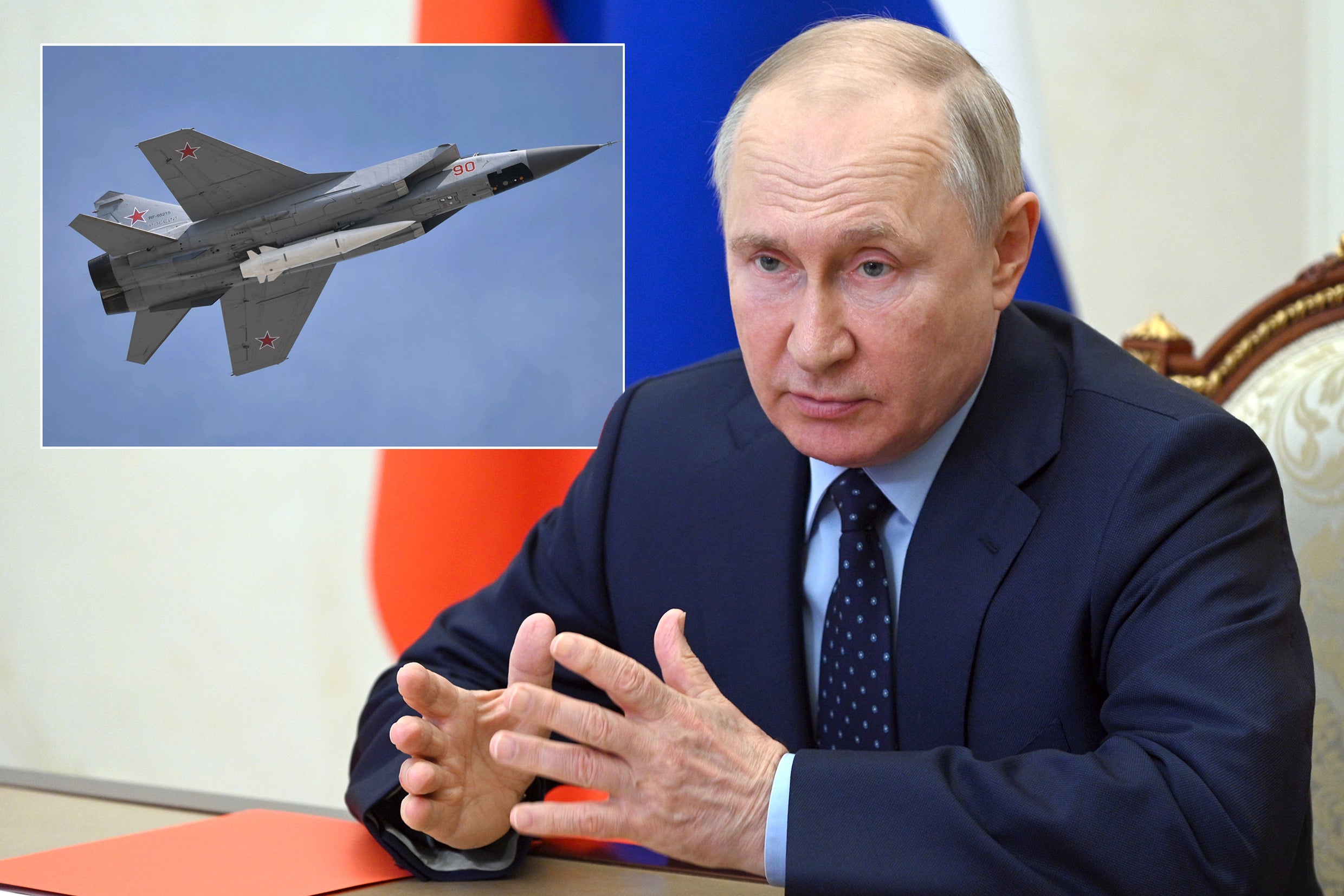Physicist working on Putin’s hypersonic missiles is jailed
Several experts working on the science behind Russia’s hypersonic missiles have been arrested

Putin’s court has sentenced physicist Alexander Shiplyuk to 15 years in prison on treason charges.
The case on Tuesday is the latest of several against experts working on the science underpinning Russia’s development of hypersonic missiles, Russian news agencies said.
Shiplyuk, the 57-year-old director of a top Siberian science institute, was arrested in August 2022. Two of his colleagues, Anatoly Maslov and Valery Zvegintsev, were also detained on suspicion of treason. Maslov, 78, was handed a 14-year sentence in May.
Reuters was not able to immediately contact a lawyer for Shiplyuk.
The trio from the Novosibirsk university are among nearly a dozen scientists researching hypersonic missile technology against whom Russia has brought treason cases in recent years.
Russia has used hypersonic missiles since the earliest stages of the conflict, claiming to have destroyed a fuel depot in the Black Sea city of Mykolaiv and an underground ammunition store in western Ivano-Frankivsk in the opening skirmishes.
But armed with growing numbers of Patriot air defence systems, Ukraine has had successes in shooting down Russia’s hypersonic missiles, significantly undermining Vladimir Putin’s claims of their supremacy.

Hypersonic missiles, like the Kinzhal rockets deployed by the Russian Air Force, are thought to represent the next generation of arms because they can move at such exceptionally high velocities.
By comparison, a subsonic cruise missile like the US Air Force’s Tomahawk rocket moves at a relatively sluggish 550mph.
Kinzhals are typically carried by MiG-31K fighter jets and can hit targets as far away as 1,250 miles. Their speed, mid-flight manoeuvrability and ability to fly at low altitudes makes them difficult to track using radar on the ground, and therefore near-impossible to stop.
Military analyst Pavel Felgenhauer has argued that the weapons will make little difference on the ground and that their true value is “giving a certain psychological and propaganda effect”.
The US and China are said to be working on their own hypersonic rockets, as are the navies of Britain and France, which are understood to have been collaborating on one known as Perseus since 2011, although it is not expected to enter service for another eight years.
Join our commenting forum
Join thought-provoking conversations, follow other Independent readers and see their replies
Comments
Bookmark popover
Removed from bookmarks